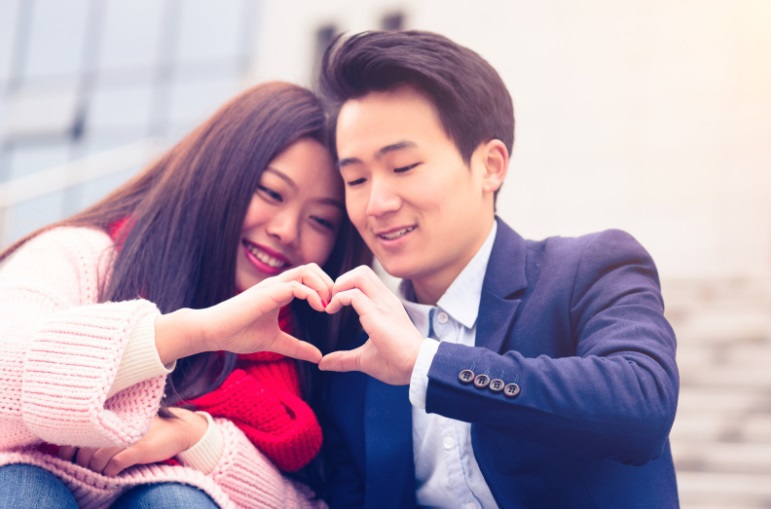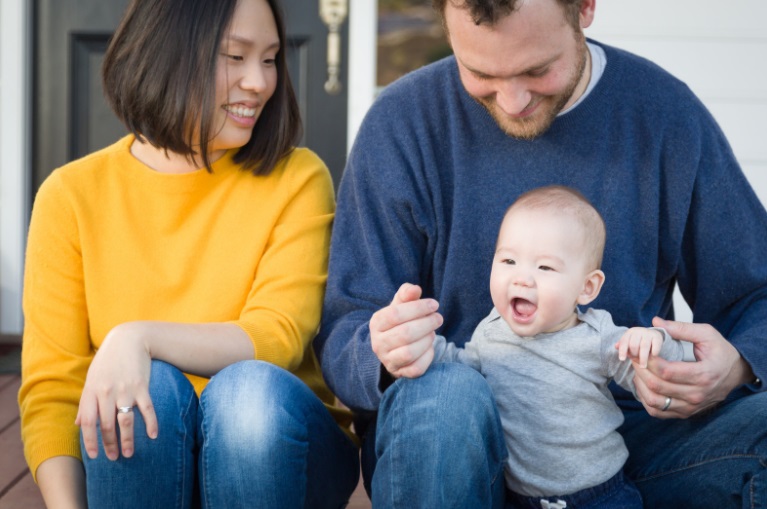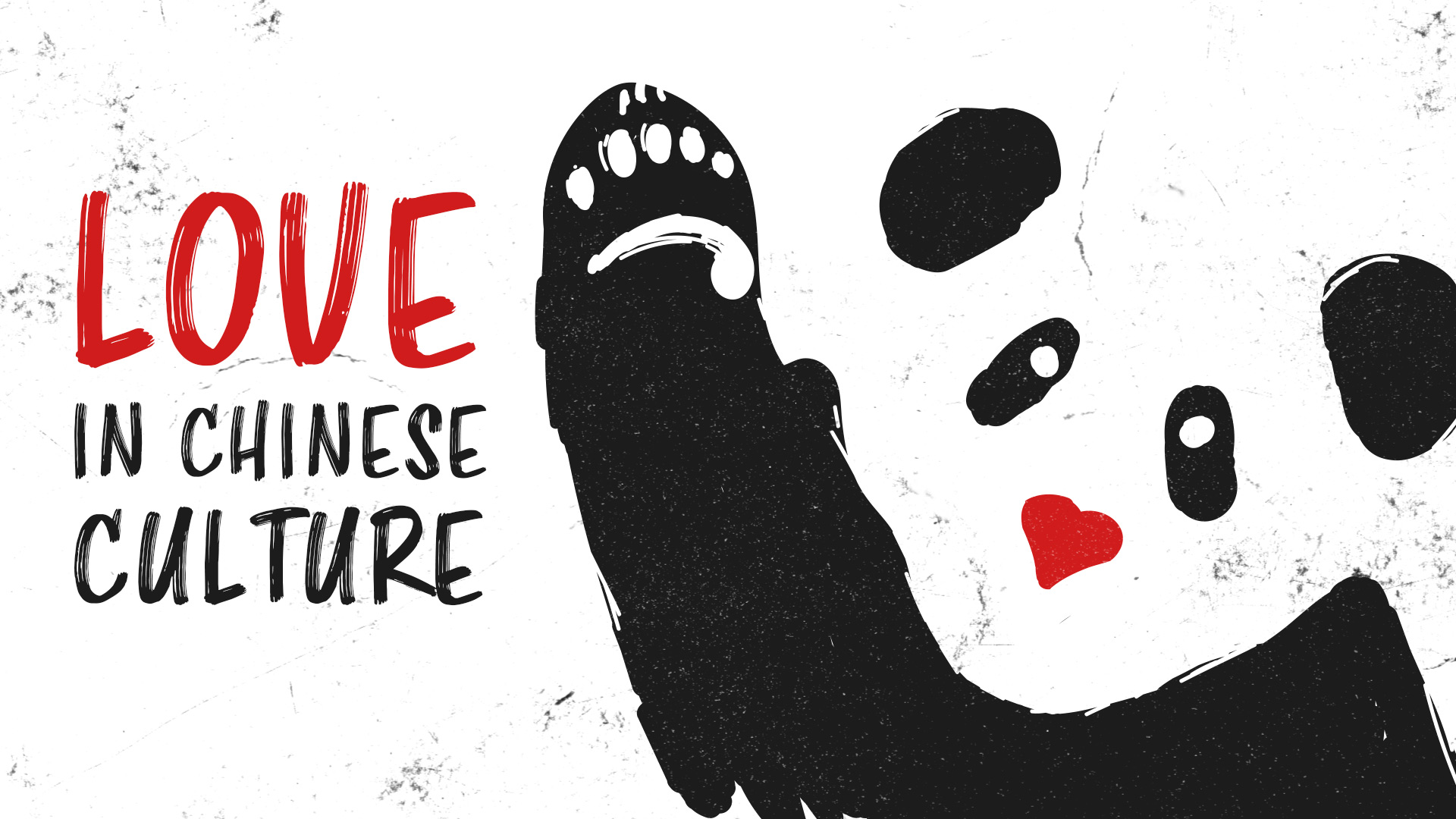How to Say “I Love You” in Chinese (Get it Right the First Time!)
Want to know how to say “I love you” in Chinese?
I’m going to show you how, in many different ways. But first, here’s something you should know about love in Chinese culture:
Chinese culture can be remarkably different from the Western culture. That also applies to dating, showing love, using pet names, and even saying “I love you”.
If you’re asking “How do you say “I love you” in Chinese?”, the answer is not as straightforward as you might think. But no worries, this article is a guide that will explain all you need to know about love in Mandarin.
Here’s your quick checklist of phrases to say “I love you” in Chinese:
- Love: 爱 (ài)
- I love you: 我爱你 (wǒ ài nǐ)
- I like you (romantically): 我喜欢你 (wǒ xǐhuan nǐ)
- I miss you: 我想你 (wǒ xiǎng nǐ)
- You’re beautiful: 你很美丽。(nǐ hěn měilì)
- You’re handsome: 你好帅!(nǐ hǎo shuài!)
- “I love u” (Chinese text slang) – 520 (五二零, wǔ'èr líng)
- I like being with you: 我喜欢和你在一起。(wǒ xǐhuān hé nǐ zài yīqǐ)
Before you decide to tell your partner you love them, have a look at the list of words, phrases and tips I prepared for you. You’ll learn what’s the best way to compliment Chinese men and women, how to tell your friend you like them and how the number “520” connects to love in the Chinese culture.

“Love” in Chinese
The Chinese character for “love” is 爱 (ài) and is mostly used to express romantic feelings for another person.
爱 (ài) can mean “love” for your family member, too. But telling each other “I love you” in a Chinese family isn’t very common, and I’ll elaborate on this later.
Identifying the Chinese word for love is easy, but 爱 (ài, “love”) is sometimes seen as overly sentimental among Chinese people. Instead, you’re more likely to hear 喜欢 (xǐhuan) – “like”.
我喜欢你 (wǒ xǐhuan nǐ) then means “I like you” in Chinese, but in the context of expressing feelings for your partner, it actually means “I love you”.

“I Love You” in Chinese
The most common way to say “I love you” in Mandarin is 我喜欢你 (wǒ xǐhuan nǐ), as I mentioned before.
That said, it’s not wrong to say 我爱你 (wǒ ài nǐ) – “I love you” – either. It’s just one of those phrases that a Chinese native speaker will understand but wouldn’t often use.
Now, if you want to respond, how do you say you love them too? If your girlfriend/boyfriend tells you they love you with 我爱你 (wǒ ài nǐ), just say 我也爱你 (wǒ yě aì nǐ) – “I love you too”.
,But if you want to sound like a native, use the other version of “I love you (too)” in Chinese – 我也喜欢你 (wǒ yě xǐhuan nǐ).
And what about “I love you so much” in Chinese? That is simple – just add “so much” after “I”. You have more options to choose from if you want to say “so much”:
- 非常 (fēicháng) – “very much” or “extremely”
- 那么 (nàme) – “so very much”
- 是如此 (shì rúcǐ) – literally “in that way”, but in this context “so much”.
One more thing: to send a message of “I love you” in Chinese, you might need to learn Chinese “coded” language. Instead of saying (actually, typing) “love” in Chinese letters, Chinese people often use numbers that sound similar to the expression.
Intrigued yet? Stay with me, and I will explain more in a moment.
“My Love” in Chinese
Chinese pet names are a bit different from the English ones. In English, we have “my love”, “baby” or “darling”. Compared to Chinese, they’re quite simple.
For example, the literal translation of “my love” in Chinese would be 我的爱人 (wǒ de àirén), which also means “my lover”.
In real Chinese conversation, you’d use 亲爱的 (qīn'ài de) which would translate as “beloved” or even “darling/dear”.

“My Baby” in Chinese
Similarly to English, the Chinese word for “baby” can refer to a child as well as a boyfriend/girlfriend.
宝宝 (bǎobǎo) and 宝贝 (bǎobèi) both mean “baby”. 宝贝 (bǎobèi) also means “treasure”.
In a relationship, a couple can refer to one another as 宝宝 (bǎobǎo) and 贝贝 (bèibèi). Both still mean “baby”.
It’s not necessary to say “my baby”, but you can always add 我的 (wǒ de, “my”) before your pet name.
“My Heart” in Chinese
The closest Chinese word to “my heart” would be 心肝 (xīngān), which literally means “heart and liver”.
Sound a bit gruesome? Well, just think of it this way – you can’t live without your heart or liver. So calling someone 心肝 (xīngān) means you love them so much, you can’t live without them.
Other common Chinese pet names include 老婆 (lǎopó) and 老公 (lǎogōng) – “wifey” and “hubby”, respectively.
Even though these two cute names are slang for a wife and a husband, many young unmarried couples use these pet names too.
“I Miss You” in Chinese
“To miss” someone and “to think of” someone is the same word in Chinese – the only difference is the context.
So, 我想你 (wǒ xiǎng nǐ) means both “I miss you” and “I’m thinking of you”. If you want to look more into the literal translation, 想 (xiǎng) means “to want”, but it’s not common to say “I want you” in Chinese when talking about your romantic partner.
我想念你 (wǒ xiǎngniàn nǐ) also means “I miss you”. The difference here is, you know for sure you won’t be seeing this person ever again.
“You Are Beautiful” in Chinese
Just as “beautiful” in English usually refers to women, and “handsome” refers to men, in Chinese there are also male and female forms for talking about beauty.
Although I’ll teach you the compliments for a man, too, remember that you shouldn’t really expect your Chinese girlfriend to praise your handsomeness.
However, don’t be surprised if one of your Chinese male friends compliments your (or your boyfriend’s) looks.
Here’s what you might hear:
- 你好帅!(nǐ hǎo shuài!) – “You’re (so) handsome!”
- 你很迷人!(nǐ hěn mírén!) – “You’re (so) charming!”
- 穿衣服真配你!(chuān yīfú zhēn pèi nǐ!) – “You look great in those clothes!”
To compliment a Chinese woman, words of direct admiration, such as “you’re beautiful” can do more harm than good.
This is because Chinese girls are taught from a young age that modesty is the best way to behave.
Direct compliments might make them uncomfortable, so you might be better off saying something creative, such as:
- 你的眼睛里有故事。(nǐ de yǎnjīngli yǒu gùshì) – literally, “There is a story in your eyes.” But in this context, it’s something along the lines of “Your eyes are so deep, it seems like they tell a thousand stories.” or even “I’m so lost in your eyes.”
- 太阳升起只是为了看到你的微笑。(tàiyáng shēng qǐ zhǐshì wèile kàn dào nǐ de wéixiào) – “The sun rises just to see you smile”.
But of course, you should still learn how to say “beautiful” in Chinese.
You two might need to get a bit more comfortable with each other first, but eventually you can still use these phrases with your girlfriend or significant other
- 你很美丽。(nǐ hěn měilì) – “You’re beautiful.”
- 你很漂亮。(nǐ hěn piàoliang) – “You’re pretty.”
- 你好可爱! (nǐ hǎo kě'ài) – “You are so cute!”
- 你看起来美极了。(nǐ kàn qǐlái měi jíle) – “You look so gorgeous.”
Chinese women (but also men) usually answer to compliments like this:
- 哪里哪里。(nǎlǐ nǎlǐ) – literally “where, where”, but what they really mean is “Oh, stop” or “You flatter me”.
- 真的吗? (zhēn de ma?) – “Really?”
“Boyfriend” in Chinese
“Boyfriend” in Chinese is easy to say. As in English, it’s a combination of the word “boy” or “male” – 男 (nán) and the word “friend” – 朋友 (péngyǒu).
Together it’s 男朋友 (nánpéngyǒu) – “boyfriend”. But it’s also possible to call your partner 对象 (duìxiàng) – this can mean “boyfriend”, “girlfriend” or “beau”.
“Husband” in Chinese is 丈夫 (zhàngfū).
“Girlfriend” in Chinese
Similarly to “boyfriend”, “girlfriend” in Mandarin Chinese is also a combination of “girl” or “female” – 女 (nǚ) and “friend” – 朋友 (péngyǒu) – 女朋友 (nǚpéngyǒu).
The word for “wife” in Chinese is 妻子 (qīzi).

What is the Meaning of “520” in Chinese?
If you are familiar with Mandarin Chinese, especially with the slang, you will likely have seen the wide use of numbers in the written language.
This number slang has its roots on the Internet, specifically in Chinese social media.
Often, the pronunciation of the Chinese numbers sounds similar to another word. A combination of them then forms a whole sentence.
Here’s an example:
886 = 爸爸六 (bàba liù) – “bye bye”. “Eight” in Chinese sounds similar to “bye” and “six” to the particle “le” that indicates past action or a change in status.
So what is “520” then? The reason why I included it in this article is because it means “I love u” in Chinese!
Here’s how it goes:
520 = 五二零 (wǔ'èr líng) – “I love u”.
5 (wǔ) sounds similar to 我 (wǒ) — “I”, 2 (èr) sounds like 爱 (ài) — “love”, and 0 (líng) gets close to 你 (nǐ) — “you”.
If you want to finish your message with a sweet word of love, 520 is not the only one you can use:
- 2013 = 二零一三 (èr líng yī sān) – “I’ll love you forever”, because:
20 (èr líng) sounds like 爱你 (ài nǐ) – “Love you”, and 13 (yī sān) is similar and is taken from the phrase 一生一世 (yīshēng yīshì) – “forever”.
- 831 (bā sān yī) – “I love you”
This one doesn’t sound like anything, Instead, 8 is the number of letters in “I love you”, 3 is the number of words in “I love you” and 1 is the only meaning of this phrase.
- 721 (qī'èryī) – “Love you”; it is formed the same way as 831.

How Chinese People Demonstrate Love – Actions Speak Louder Than Words
A large number of young Chinese couples are very traditional.
They don’t date in school. They wouldn’t be together without the purpose of marrying in the future. Their compliments may be different to the ones we know, and it’s common for the parents to be involved in their children’s relationships.
Also, love among family members can be shown differently – or not at all.
Traditional Chinese parents hardly ever say to their children, and to each other, “I love you”.
But that, of course, doesn’t mean they don’t love each other. Rather than words, they use actions.
For example, one well known Chinese greeting is 你吃了吗? (nǐ chīle ma) – “Have you eaten?”
And although this phrase is used to say “hello”, when Chinese parents ask this to their children, they’re expressing that they worry about their children being nourished. So it’s one way of showing love.
Chinese parents also say 按时吃饭 (ànshí chīfàn) – “eat on time/regularly” or 多吃点 (duō chī diǎn) – “eat some more”.
Chinese children know that when they come back home after a long time, their parents will have their favourite dish ready!
Similar to this, a Chinese parent will often tell their children 早睡觉 (zǎo shuìjiào) – “sleep early”. By this they mean they worry about and love their children.
The younger generation is getting more relaxed about the words and signs of love, but still, there are a lot of young people who are traditional and reserved.
How to Show Love to Your Chinese Partner
If you want to show that you care about your partner in an indirect way, try saying something like:
- 我喜欢和你在一起。(wǒ xǐhuān hé nǐ zài yīqǐ) – “I like to be with you/I like to spend time with you.”
- 你让我着迷。(nǐ ràng wǒ zháomí) – “You fascinate me.”
- 我觉得和你在一起很开心。(wǒ juédé hé nǐ zài yīqǐ hěn kāixīn) – “I feel very happy being with you.”
It’s also good to know that many Chinese women like to receive gifts.
Materialism isn’t necessarily a sign of love, but a gift shows you’re thinking of her and are willing to provide for her. You can buy her anything from flowers to chocolates, clothes to electronics.
Both Chinese men and women can be modest, but also insecure, so don’t forget to remind your partner this:
你在我心中是最完美的!(nǐ zài wǒ xīnzhōng shì zuì wánměi de) – “You are perfect to me!”, literally “You are the most perfect in my heart!”
If you want to date a Chinese person, remember they like to take things slowly. Make sure your partner is comfortable and know that they might not want you to kiss or touch them in public.
Give them straightforward compliments. Also, be aware that they’ll likely require you to spend a lot of time with their family.
Like I said, parents are an important part of a Chinese person’s life and if you want to date them, you’ll need to impress their parents, too. A great way to do this is to learn some basic phrases to have your first conversation, learn more about them and, of course, the Chinese culture too.
Have fun showing your love in Chinese!



Social